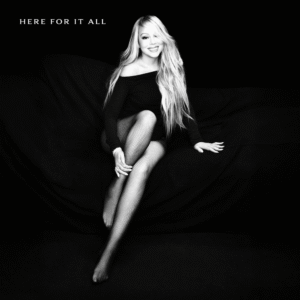As part of the celebrations marking the 20th anniversary of The Emancipation of Mimi, Mariah Carey released a quiet, soul-stirring gift to her fans: the Mimi Sessions. The video of the Mimi Sessions, having reached 500 thousand views in just three days, is a testament to how deeply this stripped-down moment resonated with listeners.
Stripped down, intimate, and emotionally transparent, these live studio performances are not just a nod to the album that redefined her career — they’re a declaration of where she stands today as an artist. And perhaps more importantly, as a woman no longer needing to prove anything.
Gone is the glitter of chart-chasing ambition or the pressure to out-sing herself. In its place: honesty, restraint, and something that feels radical in its simplicity. These are not nostalgia plays, nor are they attempts to recreate the past. Instead, the sessions feel like a homecoming — to the piano, to the voice, to the self.
Revisiting the Tracklist, Reframing the Emotion
The Mimi Sessions spotlight five standout tracks from The Emancipation of Mimi: “Don’t Forget About Us,” “Circles,” “Say Somethin’,” “Your Girl,” and the timeless “We Belong Together.” Rather than attempting to mirror the original recordings, Mariah reimagines each one with lived experience and emotional depth. “Don’t Forget About Us” becomes a soft ache rather than a power plea. “Circles” feels even more pained and conversational, with phrasing that gives the lyrics new bite. “Say Somethin’” strips away its Pharrell-produced swagger and becomes unexpectedly smoky and understated. “Your Girl,” stripped away from its background hook and layering, sounds like storytelling — pared down to its essence, it invites a more intimate interpretation of its flirtation. “We Belong Together” — the emotional anchor — is delivered in the same introspective arrangement first introduced in her viral Valentine’s Day rendition, with quiet urgency and stripped-back phrasing that makes the song feel freshly vulnerable.
These new takes wouldn’t resonate the same way without Daniel Moore on piano. A longtime collaborator on Mariah’s Caution album and co-writer of the deeply personal ballad “Portrait,” Moore’s touch is both intuitive and intimate. Known for helping shape the emotional resonance of her live performances — from intimate televised spots to her most iconic unplugged moments — his playing in these sessions is as expressive as her voice.
Letting Go Without Falling Silent
What makes these performances compelling is not what she chooses to do, but what she chooses to let go of. No flashy runs, no dramatic build-ups. Instead, we hear space. Vulnerability. Breath. The delivery leans into the lived-in texture of her voice — softer in some places, fuller in others, always intentional. There’s a different kind of power in that.
Mariah’s voice has always been polarizing to critics — in the early days, it was deemed too perfect, probably studio-stunted. Then came MTV Unplugged to silence that doubt, only for her to be told she did too much: too many runs, too much belting. With Butterfly, it was the opposite — too much head voice, too much whistling, too much range being used all at once. But these Mimi Sessions dismiss that endless noise and the need to prove anything to anyone. She’s not singing at anyone. She’s singing from somewhere — from memory, from presence, from resolve. And if the notes don’t always hit the ceiling like they once did, they now hit something deeper: the truth.
The Evolution of a Legend
What we’re witnessing is not decline. It’s transformation. Mariah is not tone deaf — she knows belting the bridge of “All I’ve Ever Wanted” with that same near-impossible-to-reach belted pitch and clarity is no longer a reality. She doesn’t verbally acknowledge time, but her vocal cords have gone from 23 to 56 years old. The smooth technical acrobatics and high-sky, crystal-clear belts may have faded, but in their place is something arguably more rare — storytelling. A melodic intimacy that doesn’t beg for applause, only attention.
These aren’t sessions designed to silence the cynics. They won’t. They never could. But that’s the point. There’s no fight in her voice anymore, no desperation to be heard over the noise. She doesn’t need to — in her prime, Mariah’s voice did what 99.9% of the world population could never do, and the music industry is yet to showcase a legendary voice like the one the world was introduced to in 1990. That legendary greatness remains untouched. Today? Just a woman, her music, and a quiet kind of confidence that can only come from knowing you’ve already done it all — and that you’re still more than enough.
In honoring The Emancipation of Mimi, Mariah Carey could’ve easily gone bigger, louder, flashier. Instead, she went inward. And in doing so, reminded us that true emancipation isn’t about showing off. It’s about showing up — just as you are.





